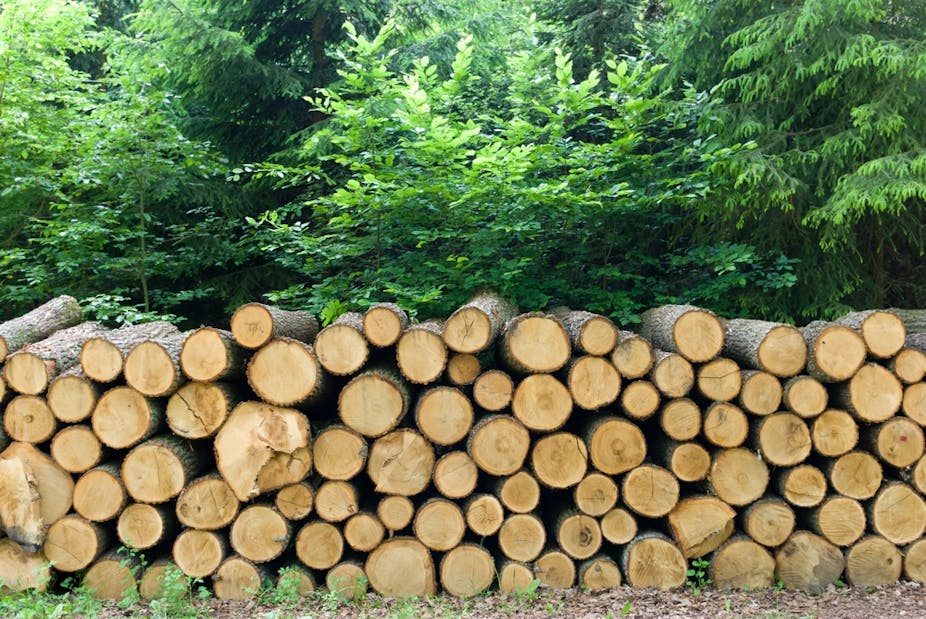Forestry company Gunns has been entered into voluntary administration after posting a $904 million loss today.
Tough economic conditions, including a high Australian dollar and falling woodchip prices, have had a significant impact on the debt-laden company, which once wielded crucial economic and political clout in Tasmania.
Dr Fred Gale, Senior Lecturer at the University of Tasmania, shares his thoughts on the fallen — and controversial — woodchipping titan.
How did Gunns get to this point?
I guess there’s the immediate issue that Gunns has been wrestling with this year, which is to come out of the global financial crisis and reposition itself as a plantation-based timber company. This is in the context in which its markets have dried up primarily in Japan as a consequence of shifting preferences there for plantation and forest stewardship council-certified timber, along with the high Australian dollar, which is seriously affecting its trading conditions.
So it’s basically been trying to restructure amid declining competitiveness, and that has been exacerbated by a very heavy debt load that it has had from about 2007 onwards, when it started a series of acquisitions at a very bad time. It has experienced a kind of perfect storm as a company, and eventually the banks that have been supporting it for the last six months realised that its financial position was not going to improve in the foreseeable future, and it would continue with a very high debt load. In addition, its asset base was rapidly eroding, so they pulled the plug.
Does this spell the end for the woodchipping industry or plantation-based manufacturing in Tasmania?
It certainly doesn’t end woodchipping generally. Australia has a very large and robust plantation woodchip industry, which is continuing to export woodchips to Asian markets. But that industry is experiencing a real cost crisis at the moment. In the short term, that’s going to continue because we have low cost chips coming from Vietnam and other countries, and in the context of a high Australian dollar, competitiveness is an issue. That’s certainly the case in Tasmania.
How integral is the woodchipping industry to the Tasmanian economy?
Well, it has been integral to the Tasmanian economy, but in the last two or three years there has been a significant restructuring of the Tasmanian economy. The woodchip industry has basically collapsed.
There’s an opportunity, I guess, through the intergovernmental agreement and the talks that are going on here between industry and environmental NGOS and labour unions, to seize this opportunity to resolve the conflict and position the chip industry for eventual recovery. Whether that opportunity is seized or not remains to be seen.
Lastly, what does the future hold for Gunns? Is this it, or is it likely that ‘white knight’ investor will come to its aid and inject some much-needed equity?
No, this is it — it’s gone. It has been, frankly, on life support for the last six months. It has been kept alive by the banks. There has been a management liquidation of assets to try and pay down debts, while keeping the hope alive that there would be a white knight that would come along and rescue the company. But the trading conditions are just so poor for companies like Gunns that it would be quite a foolish white knight who would come along. That hasn’t happened.
One of the reasons why that hasn’t happened is because Gunns has a brand-image problem. Its approach to getting the pulp mill approved and the controversies around that seriously tarnished its image. Its basic lack of a social licence to construct the pulp mill was what deterred the Richard Chandler Corporation back in March this year from investing in it. When they pulled out, they signalled to the rest of the white knight investment community that there were at issues around this project that warranted caution.

